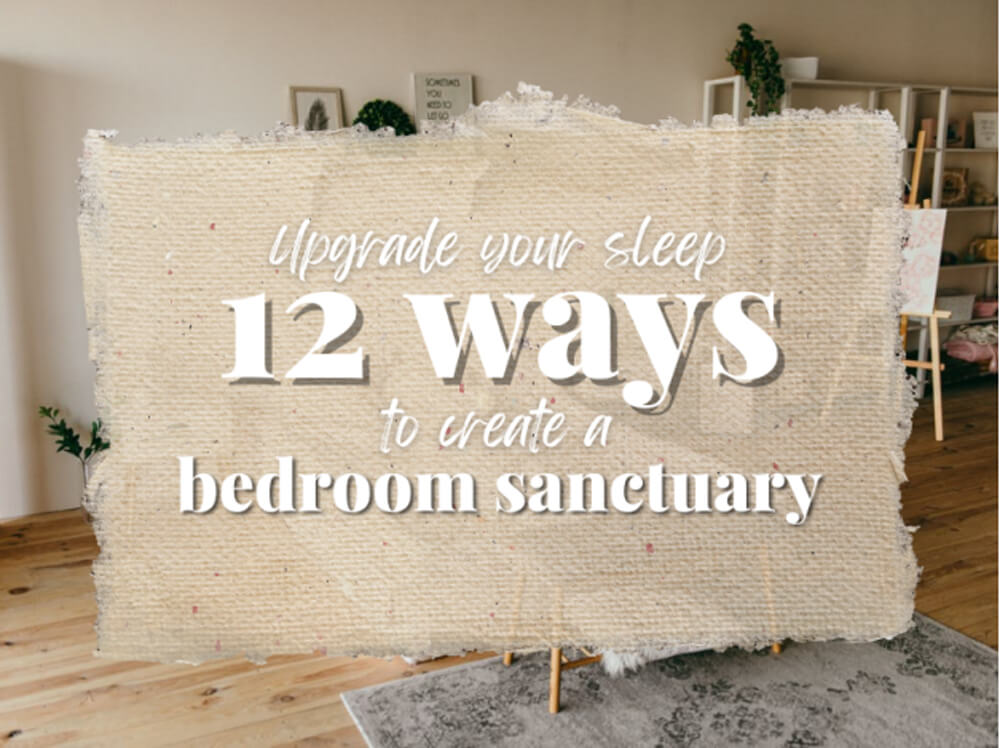
Do you struggle to fall asleep? Or do you wake up in the middle of the night and can't go back to sleep? Is it past midnight, but you’re still tossing and turning in your bed?
If you answered yes to one of those, then you’re on the right page
National Sleep Foundation recommends healthy adults to get at least 7 to 9 hours of sleep. Insufficient sleep can affect judgement, mood, productivity, and may result in poor health.
But how could we improve the quality and quantity of our sleep?
Consider your senses. According to the Division of Sleep Medicine, the bedroom setting can have a large effect on how well and how long one sleeps. The right balance of light, noise, and temperature is essential for a good night's rest
Create a cozy environment conducive to sleeping with these 12 simple steps:
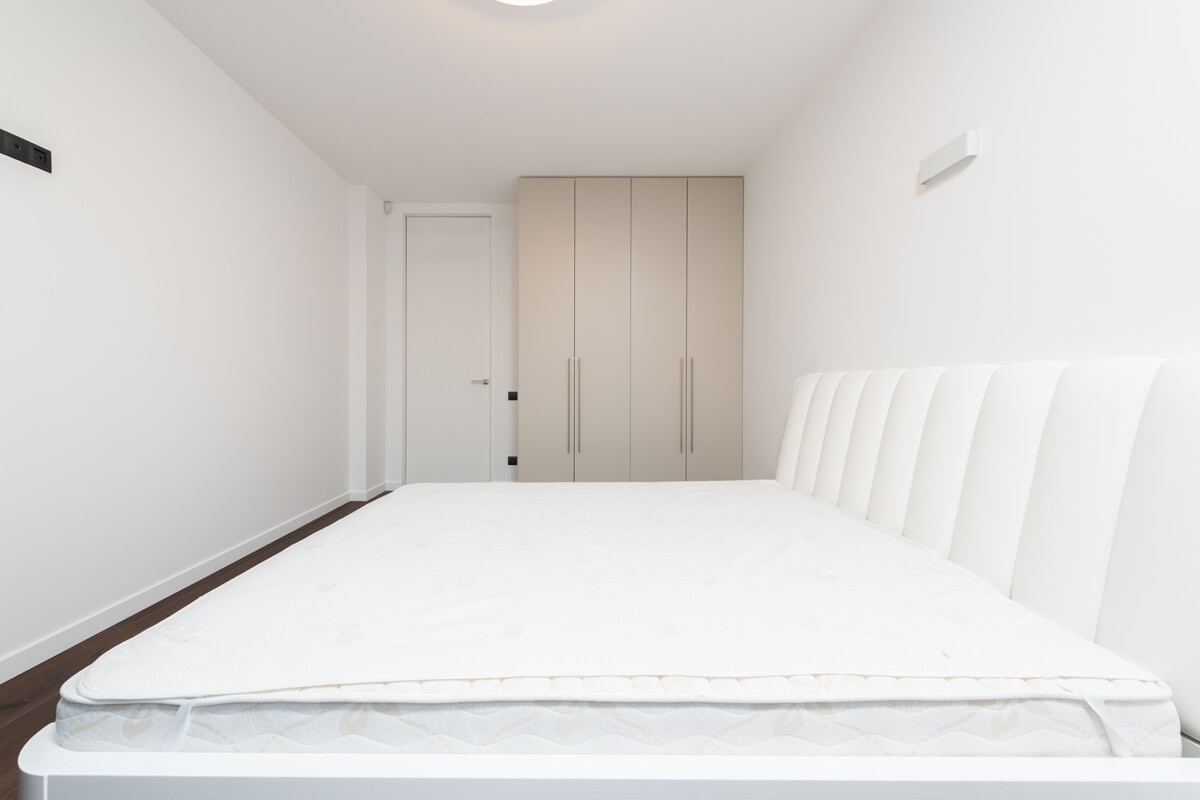
Your mattress may be to blame for you not getting enough restful sleep. If your mattress doesn’t provide enough support, you may end up with back pain and aches in the morning. Of course, you don't want something like that to occur.
Based on trials, a medium-firm mattress which is custom inflated is best to promote sleep comfort, quality, and spinal alignment. On the other hand, another study found that latex foam mattresses can reduce peak pressure on the body by up to 35.1%.
Looking for the right mattress may be a tedious process, but keep in mind that it should support the normal curvature of your spine.
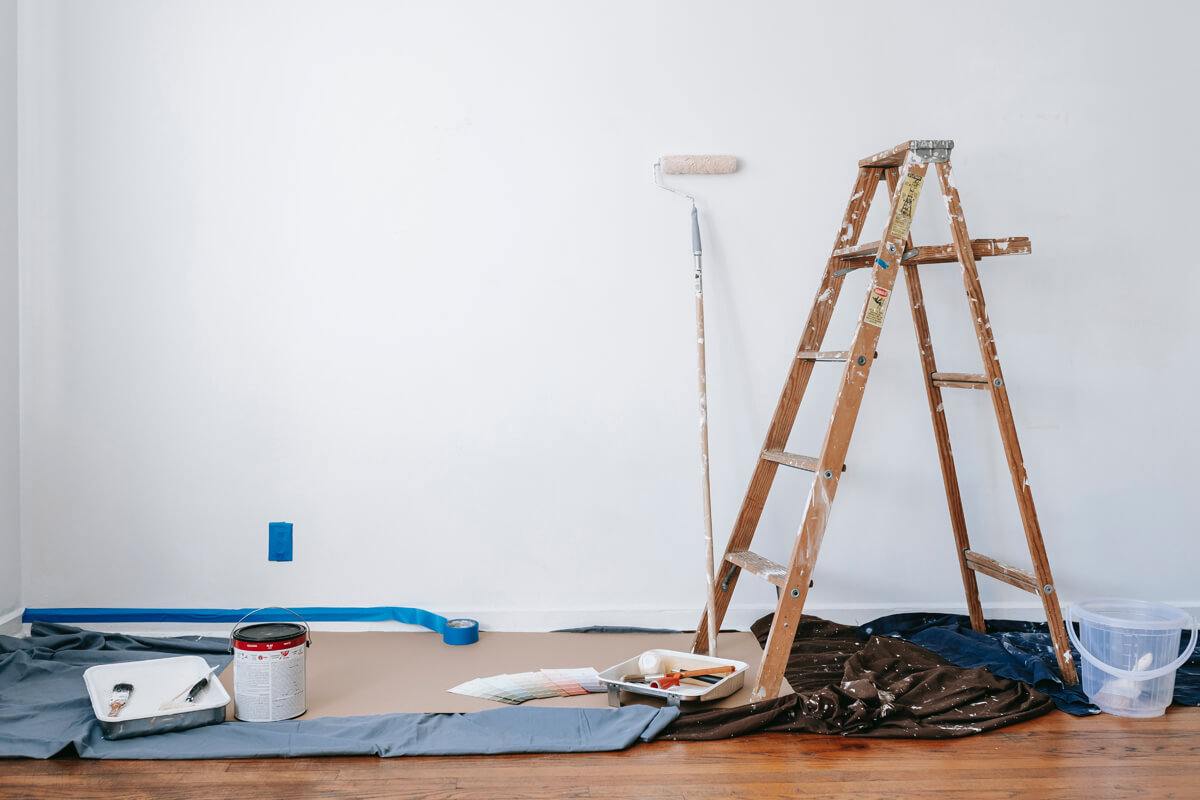

When you hear the color blue, what images immediately pop into your head? Is it the gentle sway of the ocean waves or the softness of the clouds above?
You'd be surprised to learn that the color you choose for your bedroom's walls can have a significant impact on how well and how long you sleep. Researchers have found that blue tones are the best color for your room. Blue provides a calming, relaxing, and soothing feel according to studies.
Meanwhile, green gives you a feeling of comfort, calmness, and balance. If you’re looking for a fresh outdoorsy feel, but still want to promote sleep, then green tones might be for you.
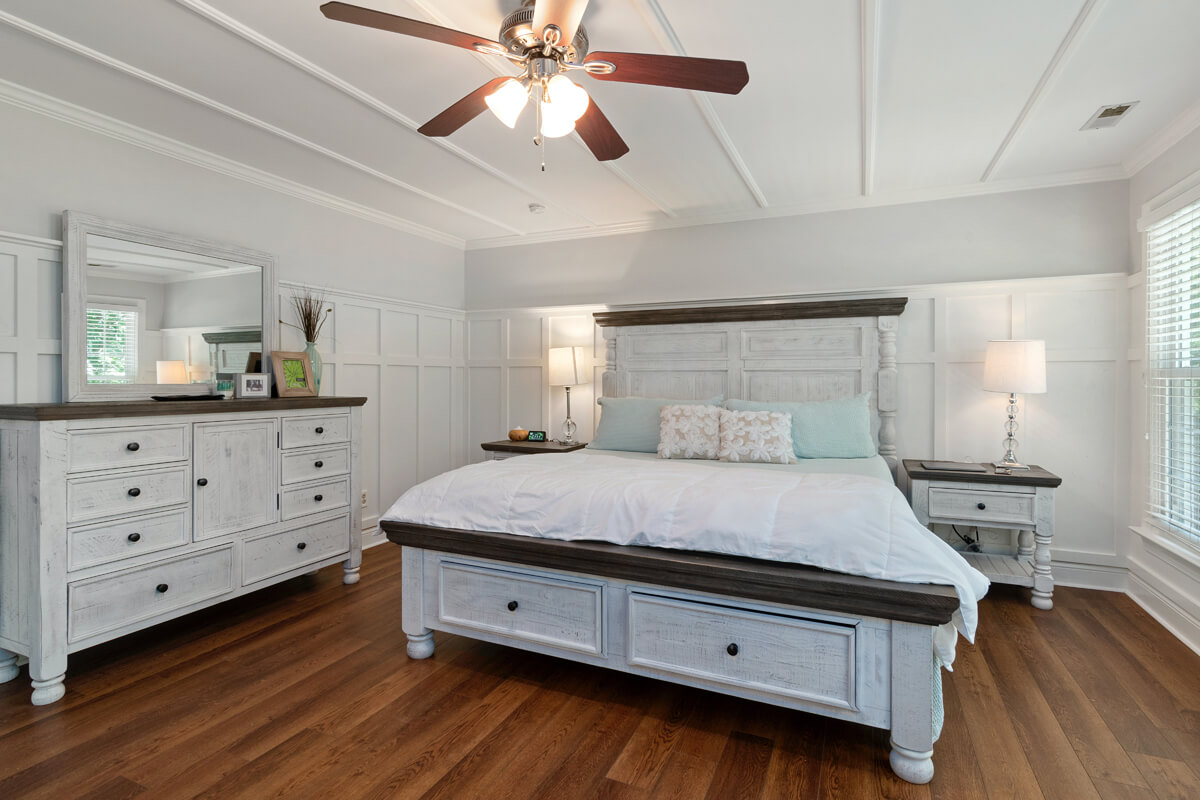
A temperature that is too cold or too hot can definitely wake you up at night. Normally, our body temperature drops during the initial process of sleep. You tend to get under the covers to feel warm and cozy. But, too much heat can disrupt the initial sleep process, making you feel restless and hard to get back to sleep.
Contradictory, temperatures that are too cold might not have a big effect on your sleep cycle, but they can make your heart work harder to keep your temperature stable. According to National Sleep Foundation, a temperature of 60 to 67 degrees Fahrenheit (15.6 to 19.4 degrees Celsius) is recommended for better sleep. During the warmer months, make the most of your fan or air conditioner.
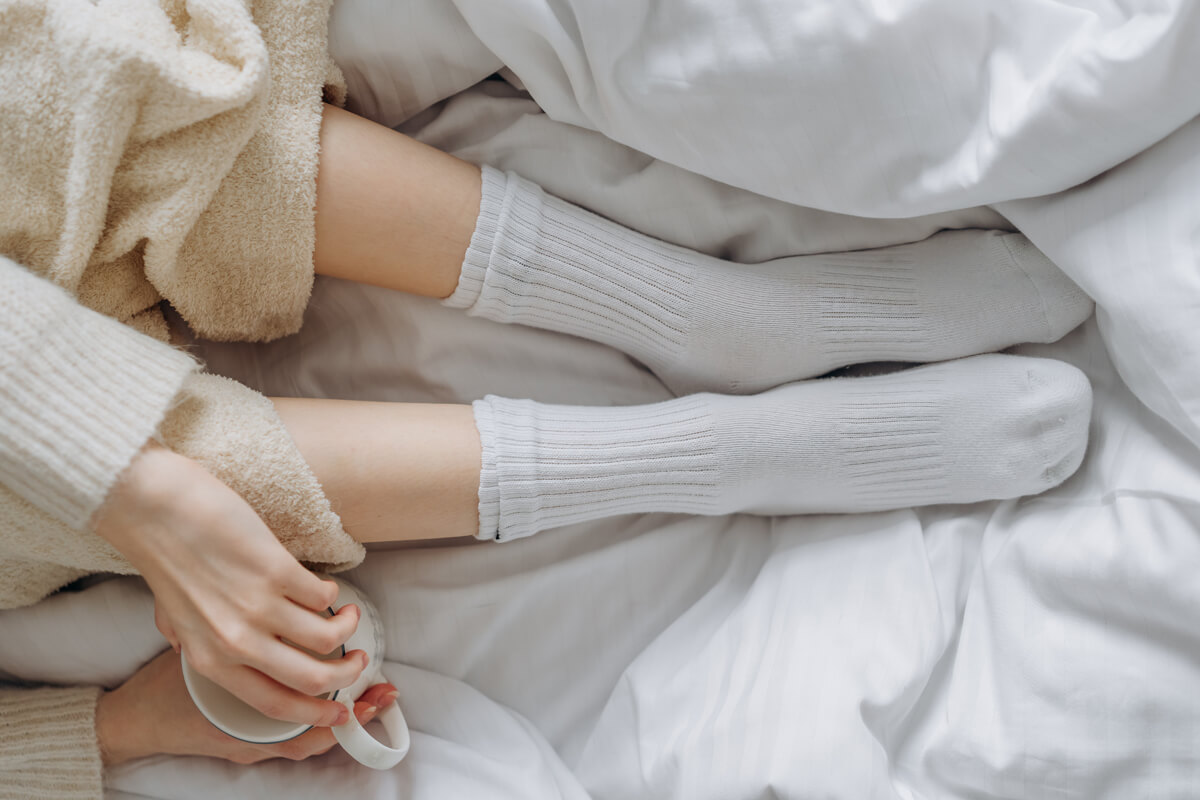

It’s true that a comfortable bedsheet might feel like a warm embrace as you drift off to sleep. According to Dr. Erum Ilyas, if your bedsheets aren't helping your skin do its job, you may not sleep as well. Synthetic sheets keep more bacteria and make you feel uncomfortable because they don't breathe as well as natural ones. To help you decide, we've included three options of all-natural bedding:
Cotton helps retain heat in colder months and has a cooling-effect on warmer days
Linen is flexible, versatile, and keeps the body at the right temperature
Bamboo is more eco-friendly and has greater moisture absorption compared to other materials
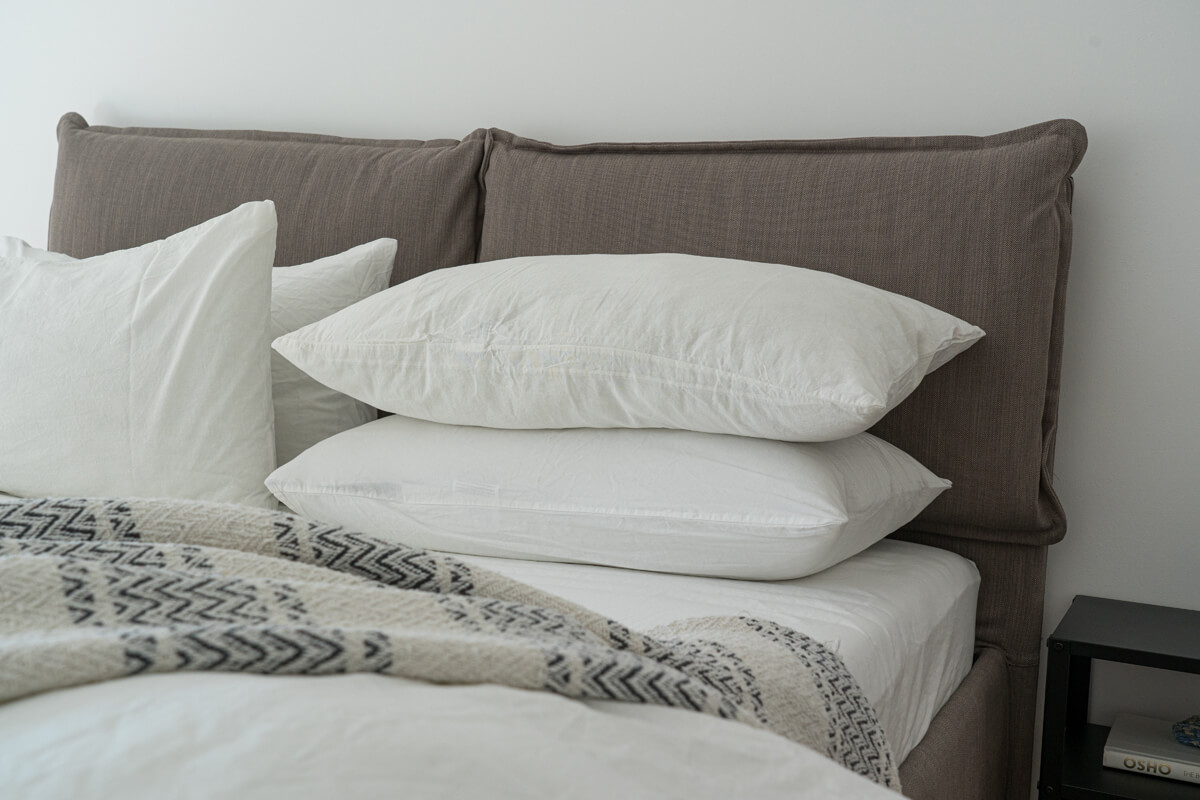
Do you change your pillows every one to two years? Are they already flat or running yellow? Perhaps it's time for a new one. Choosing the proper pillow is as important as selecting the proper mattress. Too firm or too stuffed can produce waking symptoms like cervical pain and stiffness, headaches, and arm pain.
Researchers identified three critical characteristics of an optimal pillow:
Neck Support - a soft pillow that is not too high and provides firm support for cervical lordosis appears to be the best type of pillow
Temperature - moderate cooling of the head by the pillow at night is important for deep sleep
Pillow Comfort - good sleep and relief from cervical pain are best achieved with a pillow that is cool, not too hard, and provides adequate support for cervical lordosis
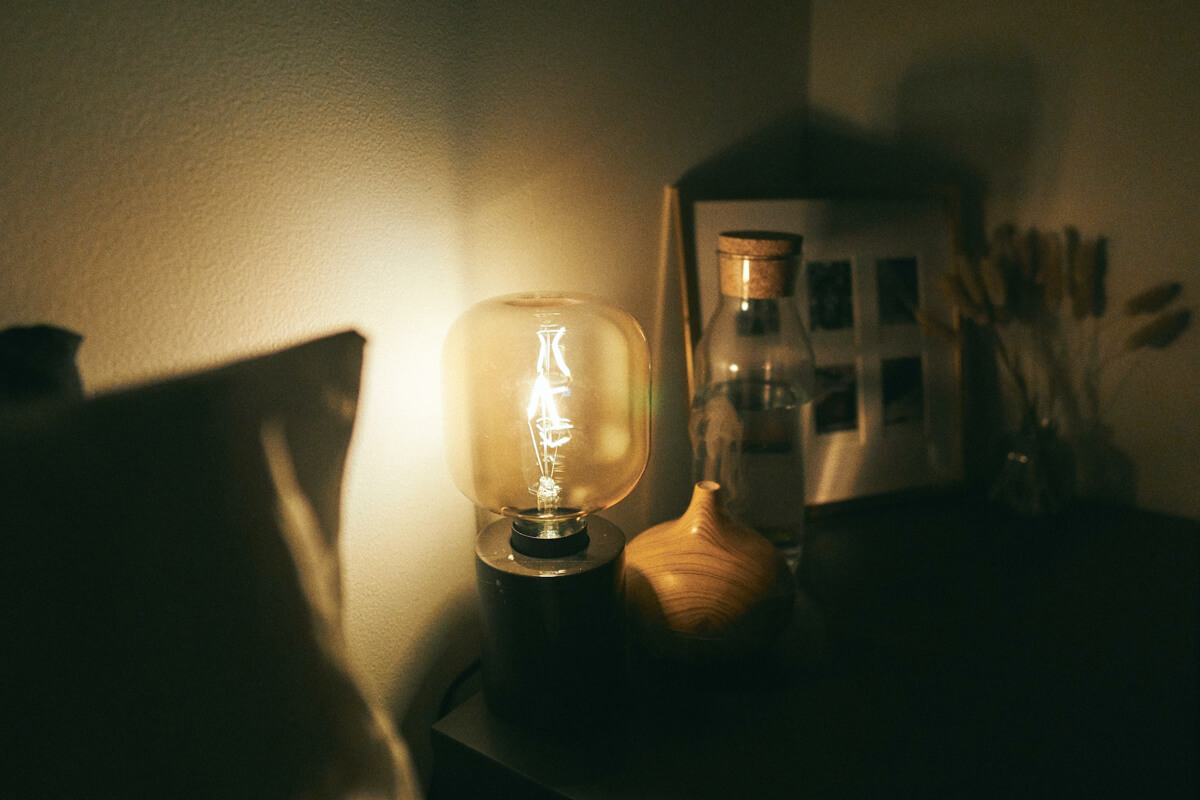

Light affects our sleep, our ability to think, and our overall health. Blue and white light makes you feel alert and energized. That’s why the light on your phone keeps you awake at night. While red or amber light encourages secretion of melatonin to help you fall asleep.
A recent study shows that low color temperature provides better sleep, decreased fatigue, and makes you feel less sleepy. It's safe to say that everyone has their own ideal level of lighting. Some people prefer to have a night light on while sleeping, while others prefer total darkness. But it is highly recommended to avoid bright light exposure before bed. Which leads us to our next step: Keeping your electronics out of your bedroom.
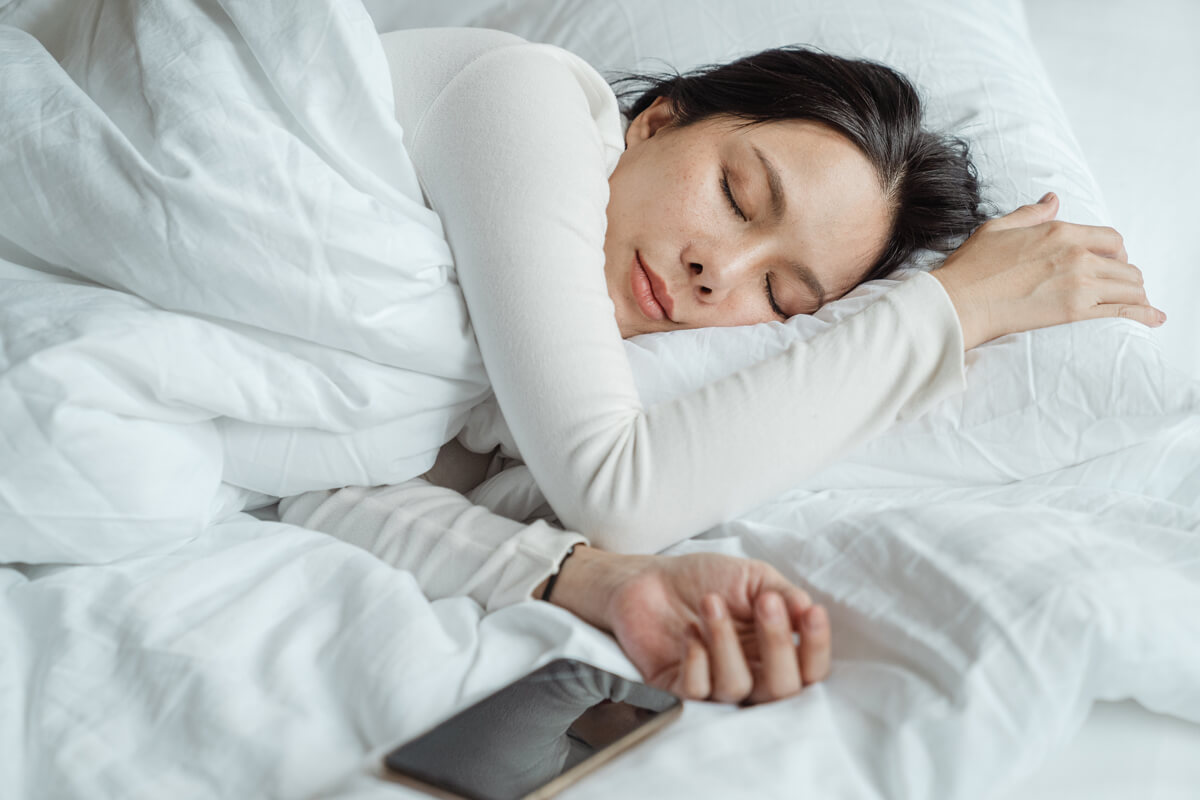
Everything nowadays is on social media, and you want to stay up-to-date. You may find yourself browsing endlessly through Tiktok or getting caught up in an online shopping frenzy. What was supposed to be an early night of sleep turned into late night scrolling.
Several studies showed that individuals who use their smartphones throughout the night tend to be poor sleepers. It has also been found that electromagnetic radiation produced by smartphones can disrupt your body from making melatonin, which can make it hard to fall asleep.
Don't tempt yourself with notifications by checking your phone constantly; instead, put it on mute or put it far out of reach.
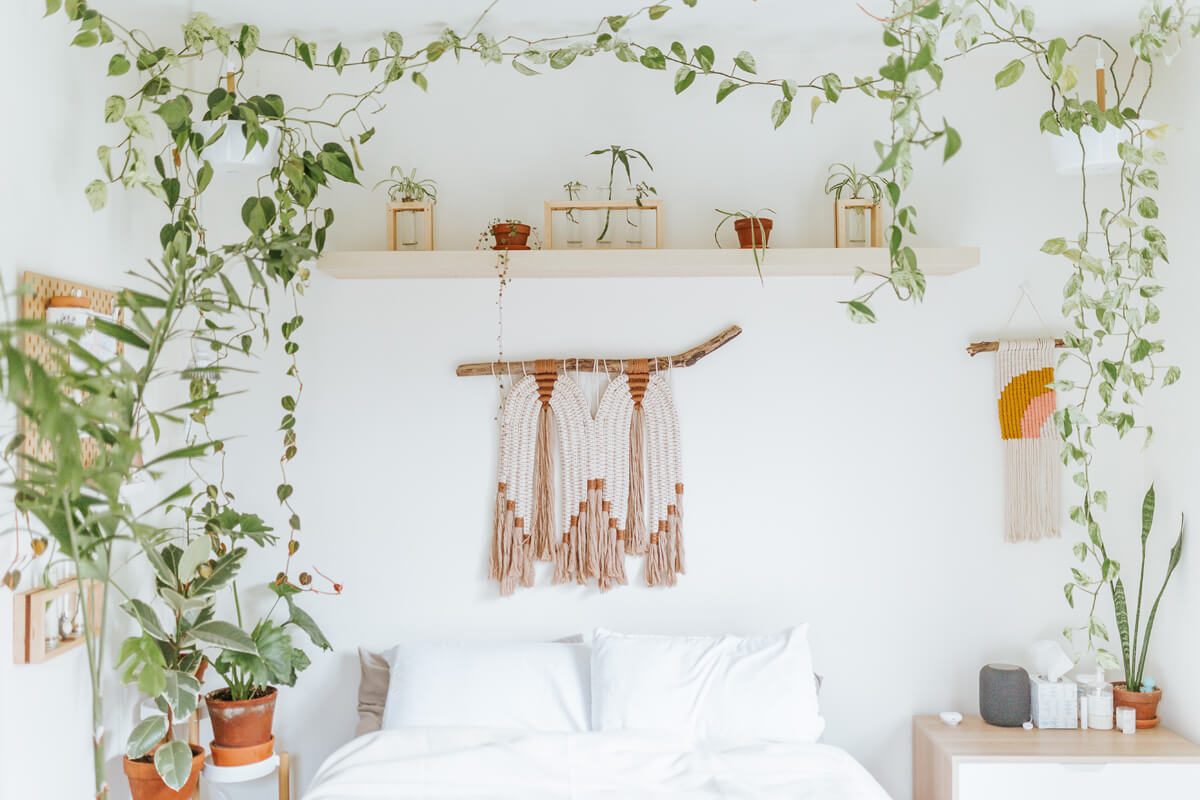

Plants in the bedroom serve more than just an aesthetic purpose. Studies have shown that plants can improve sleep quality, increase productivity, and enhance your mood. One of the best air-purifying plant for your bedroom is Lavender. A study found that lavender exposure resulted in increased morning vigor and a higher percentage of deep sleep in men and women.
Here are other air-purifying plants for your bedroom:
Aloe Vera
Snake Plant
Peace Lily
English Ivy
Gerbera Daisies

Essential oils can be a great alternative if you’re not into plants. Research has shown that essential oil helps secrete serotonin. Serotonin makes you feel calm and relaxed, but it is also needed to produce melatonin, a hormone making you feel sleepy.
Essential oils are commonly used with a diffuser to help disperse the scent in your room. You can also apply it directly on your skin such as your chest, wrist, neck, forehead, hands, or feet.
Here are some of the sleep-inducing essential oils you may want to try:
Lavender Oil
Chamomile Oil
Jasmine Oil
Bergamot Oil
Ylang Ylang Oil
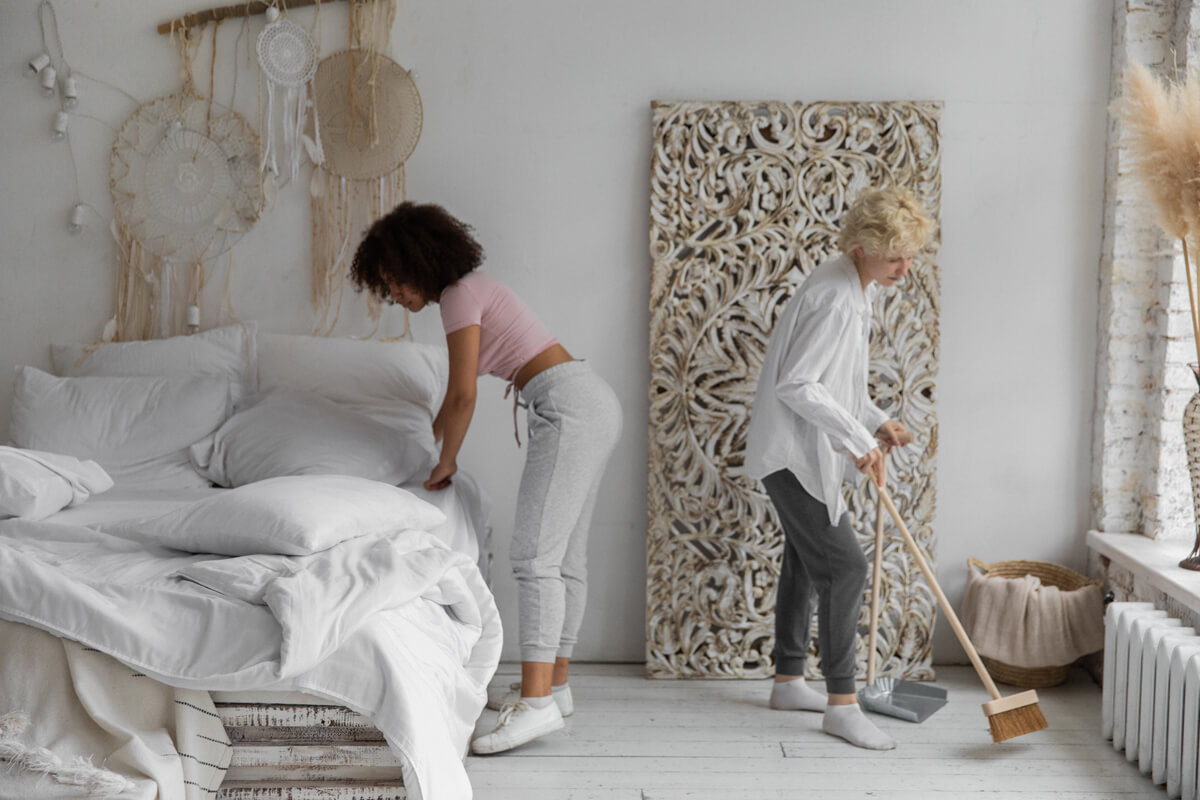

Do thoughts of a cluttered bedroom make you feel unsettled? Studies have shown that people who sleep in cluttered rooms don't get as much rest as those whose bedrooms are clean and clutter-free. Cleaning can also help to remove dust, which can improve the quality of the air in your room and promote better sleep.
A survey by the National Sleep Foundation identified that 19% of people who make their bed in the morning get a good night’s sleep. Many experts recommend changing your sheets at least once a week. Studies found that 75% of people get better sleep from having clean sheets.
Though getting started on a cleaning routine may be challenging, the benefits are well worth the effort.

Are you one of those people who study or work from their bed? You might want to rethink using your bed as a workspace, and here’s why. According to a sleep medicine therapist, when we use our bed for working, reading, watching, etc. we start to associate it with being awake. We want the bed to be a sign that it's time to go to sleep, and working in bed breaks this link.
Maintaining a physical and mental break between work and rest is critical. Create a separate space for work and make your bed a bed-space activity only.
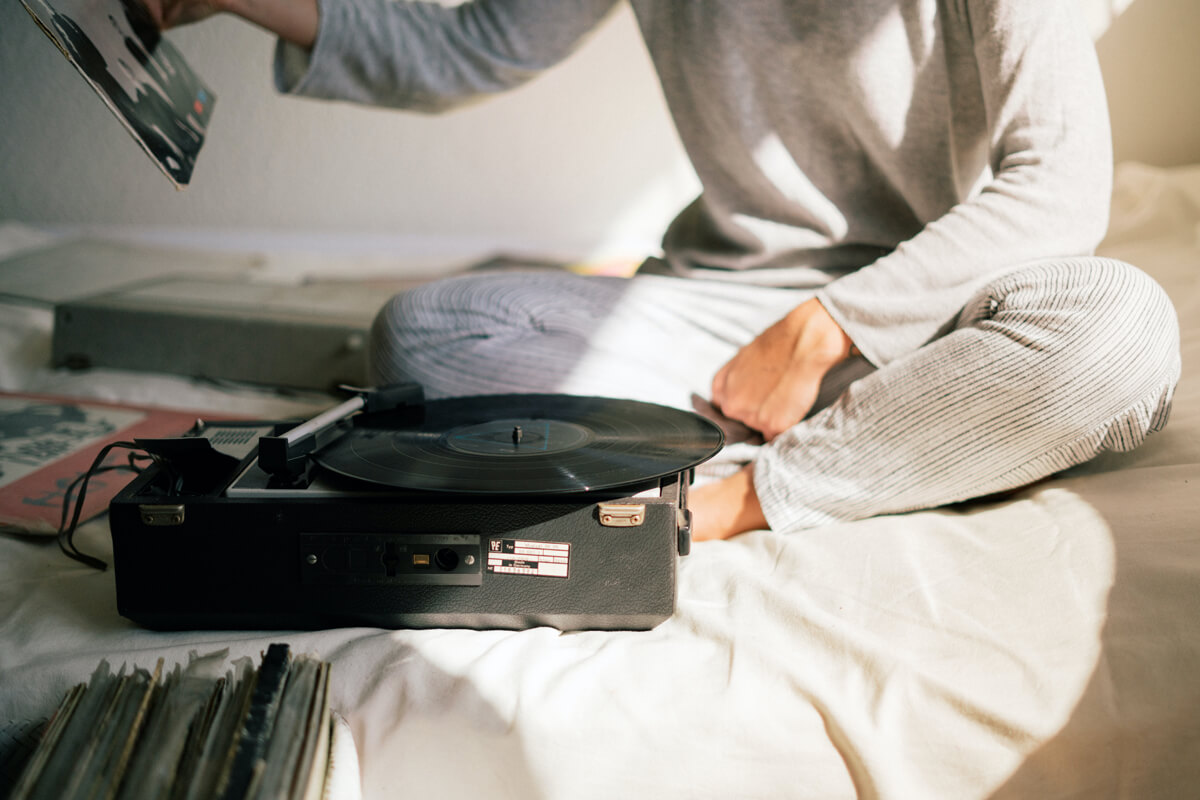

Don’t forget to consider the nocturnal noises. When you're in a busy place, everyday sounds like a baby crying, dogs barking, or loud people talking can keep you from sleeping. Somehow, it is impossible to block all these noises unless your room is soundproof.
Listening to music is one way to improve the quality of your sleep without breaking the bank. Several studies have shown that music creates a physical or mental state that makes it easier to sleep and blocks stimulus that would otherwise wake you up.
Some people might suggest sleeping with earbuds or headphones to block out noise, but this can be very uncomfortable and may hurt your ears. Lucky for you, most of the music player nowadays has a sleep timer. Just pop some relaxing tunes on your phone and set a timer to automatically stop audio, so you don’t have to wake up just to turn it off.
Reinvent your space and regain peace. Take time to create the right atmosphere. After all, everyone deserves a soothing and relaxing bedroom sanctuary after a week of work.